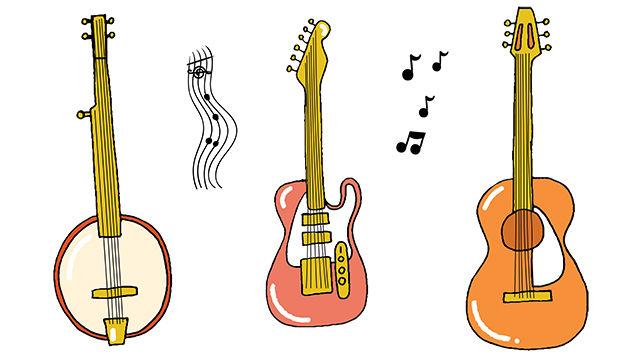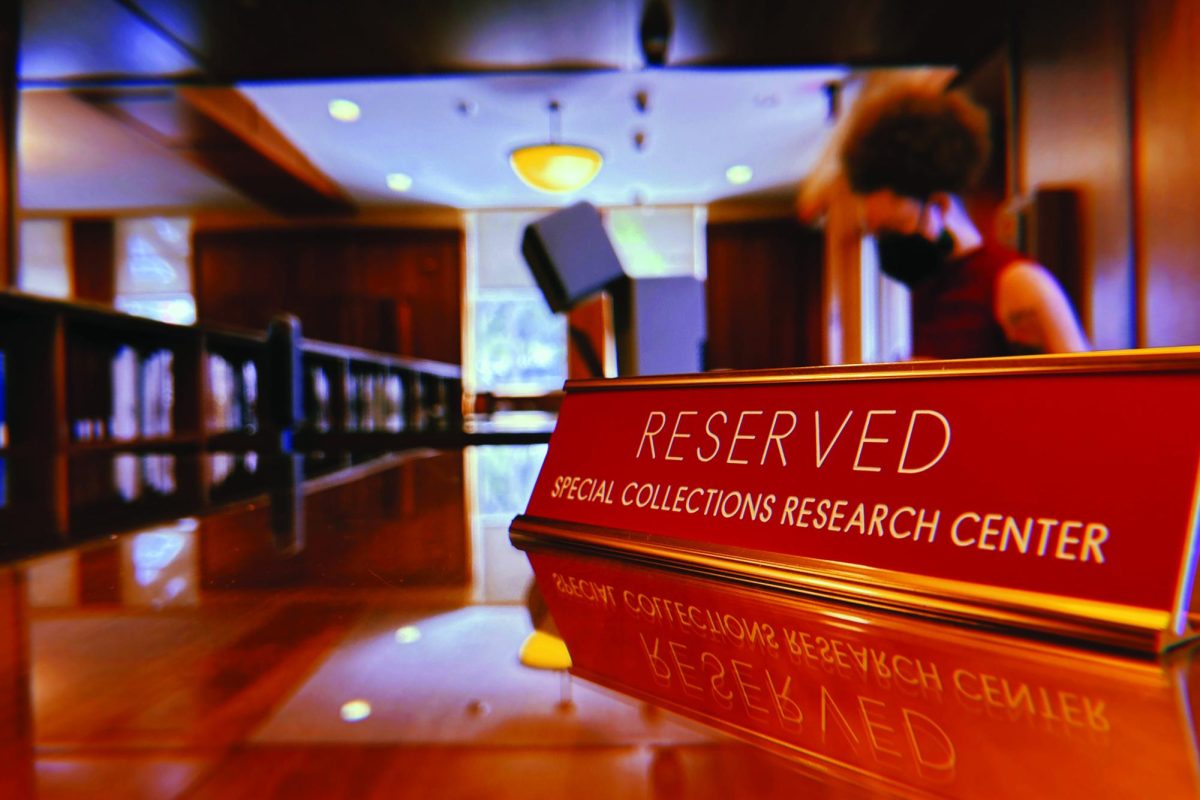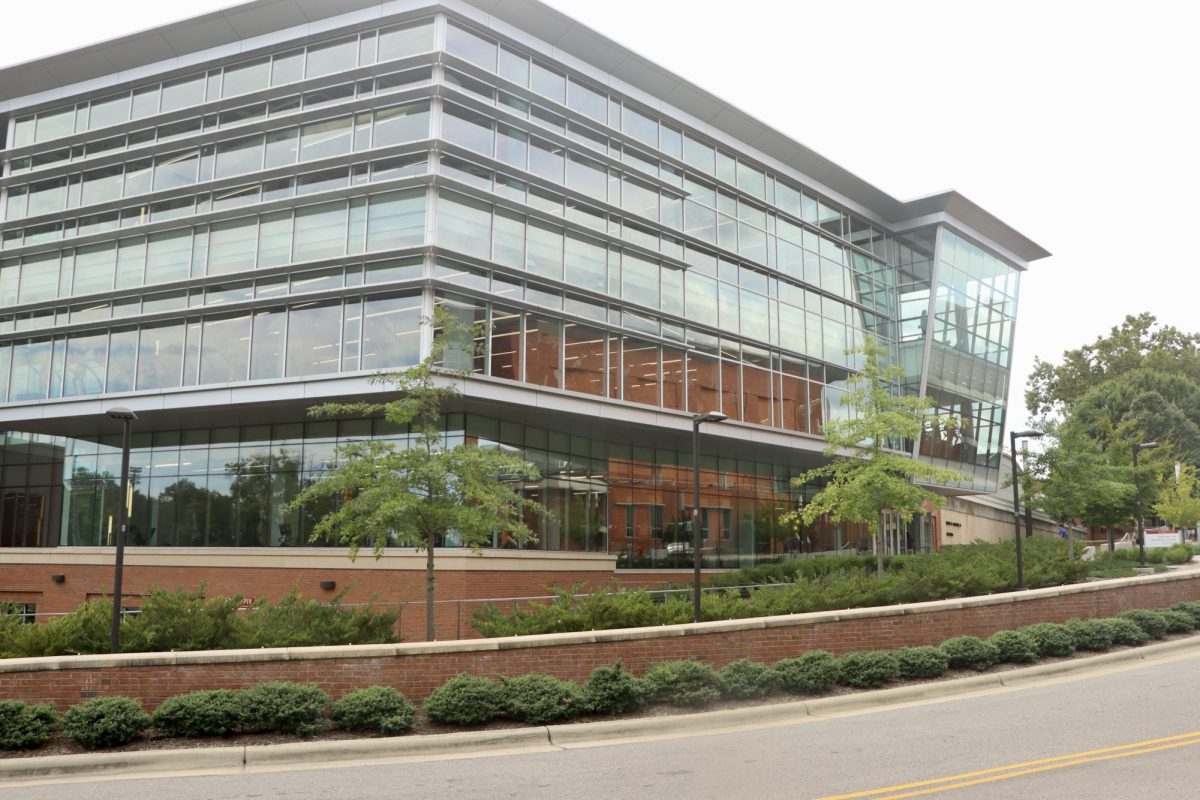Fingers and fiddle bows were flying Friday and Saturday at Wide Open Bluegrass, a two-day international music festival in its fourth year in downtown Raleigh. The event consisted of more than 100 performances, including a ticketed main stage in the Red Hat Amphitheater and a free street fest that spanned the entire length of Fayetteville Street and some surrounding blocks.
“[The main stage] features eight bands per day, some well-known artists and lots of acts that demonstrate the breadth and depth of bluegrass music,” said William Lewis, executive director of PineCone, a Raleigh-based nonprofit organization responsible for producing the event. “We curate it to kind of tell the full story of bluegrass. There’s a lot of influences, there’s a lot of sounds, there are a lot of incredible musicians.”
Performers included the Nitty Gritty Dirt Band, Ricky Scaggs and Kentucky Thunder, and the Steep Canyon Rangers.
In addition to the ticketed performances, visitors could enjoy a free street fest that included seven stages, food trucks, vendors, beer tents and activities for children. Most vendors were local, as an entire block was devoted to Raleigh businesses and another to those based in North Carolina. Many performances were by local bands, including Asheville-based Songs from the Road Band and The Snyder Family Band from Lexington, North Carolina.
One stage featured students participating in the Junior Appalachian Musicians (JAM) after-school program, which introduces children to common bluegrass instruments.
“We try to promote traditional music education in the schools,” said Ron McFarlane, a JAM board of directors member and husband of Raleigh Mayor Nancy McFarlane. “It’s an awesome program.”
This is JAM’s third year participating in Wide Open Bluegrass, according to McFarlane, who also plays in a band with NC State Chancellor Randy Woodson.
“He’s our best guitar player. He’s a good singer, too,” said McFarlane of Woodson. According to McFarlane, the chancellor performed a song at the festival on Friday night with the Haywood County, North Carolina-based band, Balsam Range. The band won the International Bluegrass Music Association’s (IBMA) Entertainer of the Year and Vocal Group of the Year honors in 2014.
Wide Open Bluegrass is part of a wider five-day-long series of events called World of Bluegrass, hosted by IBMA. Other main events during the week are the IBMA Awards Show at Memorial Auditorium and the three-day Business Conference, held partly at the Raleigh Convention Center. World of Bluegrass also includes a showcase of bands called the Bluegrass Ramble, a series of close to 200 performances that take place throughout the week at live music venues around Raleigh.
Although IBMA is the main organization behind World of Bluegrass, it hired PineCone to produce the festival portion of the week. PineCone, along with the Raleigh Convention Center and the Greater Raleigh Convention and Visitors Bureau, was responsible for first bringing the event to Raleigh in 2013. It had previously been held in Nashville, Tennessee and Kentucky. IBMA’s initial three-year contract had the event scheduled in the Oak City through 2015, but through a renewed contract, World of Bluegrass is now set to return through at least 2018.
“When we moved [World of Bluegrass] from Nashville to Raleigh, one of the things that Raleigh partners were interested in was that the general public could have access to bluegrass,” Lewis said. “The street festival is free and open to the public. [It] allows the audience and fans alike to experience bluegrass for no cost.”
According to Lewis, World of Bluegrass routinely attracts crowds of between 140,000 to 180,000 people, and the vast majority of those are attendees at the street fest.
“It’s a pretty amazing event when you look at the breadth of it,” Lewis said. “The event has really grown, and it’s become one of Raleigh’s signature events.”
The festival is making a mark on Raleigh, according to Nick Brown, a Knightdale, North Carolina native who attended the festival for the first time this year.
“I’ve seen a couple of the people [perform] before,” Brown said. “I’m glad they’re here in Raleigh. That actually makes me really happy that some of these people are coming into Raleigh and helping the scene out here.”
Performances were not limited to officially booked bands. Pop-up performances occurred on the steps of the courthouse, on sidewalks along Fayetteville Street and even in nearby hotels.
“The culture of bluegrass is to play,” Lewis said. “You’re not just going to see it on the stages. Sometimes bands are formed and people are discovered. It’s a lot to take in; it’s very complex.”
Part of the proceeds from ticket sales will benefit the Bluegrass Trust Fund, which provides assistance to professionals in the bluegrass music industry in times of financial need.




